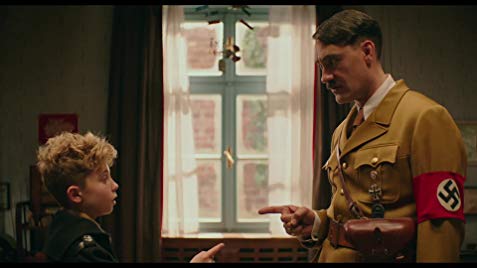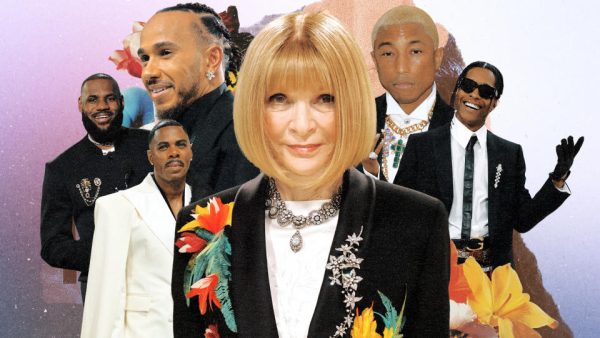The Brilliance of Jojo Rabbit
A film review

Taika Watiti, the director of Thor: Ragnarok and Hunt for The Wilderpeople, explores themes of blind nationalism and hate in his new WWII satire “Jojo Rabbit. The film follows Johannes “Jojo” Betzler, a 10-year-old boy in the Hitler Youth who is feverishly proud of his country and all they stand for. But after discovering that his mother is hiding a Jewish girl in his attic, he begins to question these beliefs, and his world is turned upside down. Watiti perfectly infuses clever humor into a rather serious topic, making for a hilarious yet touching coming of age story.
After a scarring injury at a weekend Hitler Youth camp, Jojo is ostracized from the group for his ‘weakness’ and is forced to run office duties (instead of going off to war like his fellow 11 year old companions). He works under the Captain Klenzendorf (Sam Rockwell) and Fraulein Rahm (Rebel Wilson), klutzy characters that emphasize the absurdity of German thought at the time. Although he feels worthless and lonely, Jojo is kept company by his imaginary best friend and the fuhrer himself, Adolf Hitler. Watiti plays the character as gleeful and overly animated, a clear and clever nod at Charlie Chaplin in The Great Dictator. Roman Griffin Davis (Jojo) also delivers a fantastic performance, perfectly accenting and developing the character.
Upon discovering his unknown Jewish housemate Elsa, Jojo quizzes her every day on the nature of her “evil” race. With his father away at war and no friends, the two grow incredibly close, and Jojo begins to care deeply for her. In doing so, he realizes that what he has been taught is flat out wrong, and begins to doubt everything. These feelings are shared by his sympathetic mother (Scarlett Johannson), who is clearly appalled by her sons avid nazi sentiment. As the story progresses and Jojo continues on his journey to empathy, humor and sentiment are combined to evoke both laughs and tears from the audience.
The watching experience is enjoyable in all aspects. Cinematographer Mihai Malaimare’s expertise shines through in accomplishing the difficult task of showing a child’s perspective of such a traumatic time period. The camera is frequently at a lower level (similar to Jojo’s height) and oftentimes the top half of frames seem to be cut right off. Additionally, the color pallete is bright and striking. His mother’s pastel clothing, his house’s wall paper and the never ending red of the German flag all contribute to a sense of childlike wonder. Production designer Ra Vincent stated that “we [production team] gave color cues about what was going to happen that would change Jojo”.
Although it slightly pales in comparison to similar movies like Inglorious Bastards, Life is Beautiful and The Producers, Taika Watiti does a fantastic job of blending humor and raw emotion in this adroit film. In a time with anti-semetism and other hate crimes on the rise, Jojo Rabbit serves as a firm reminder of both the importance and impressionability of youth.







